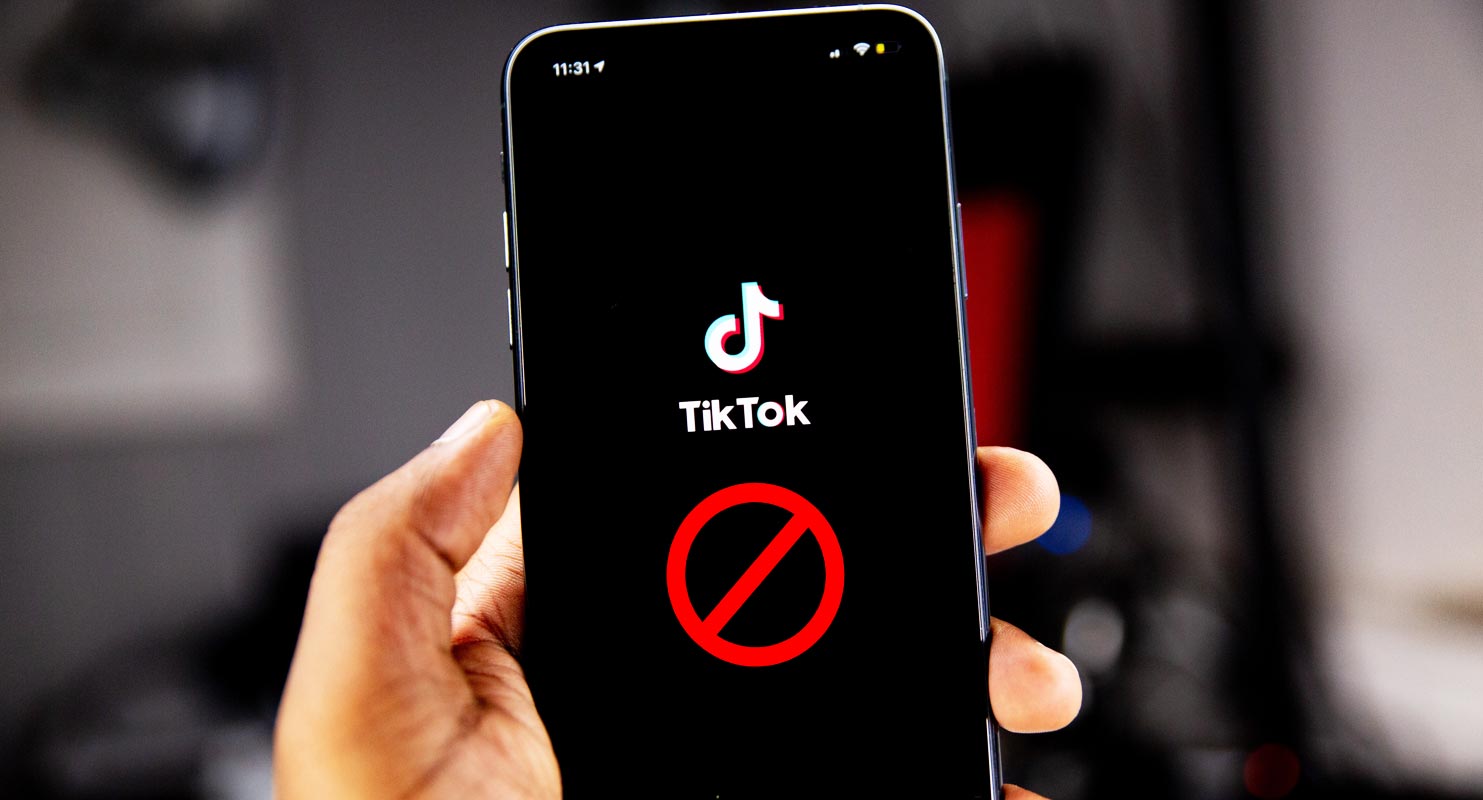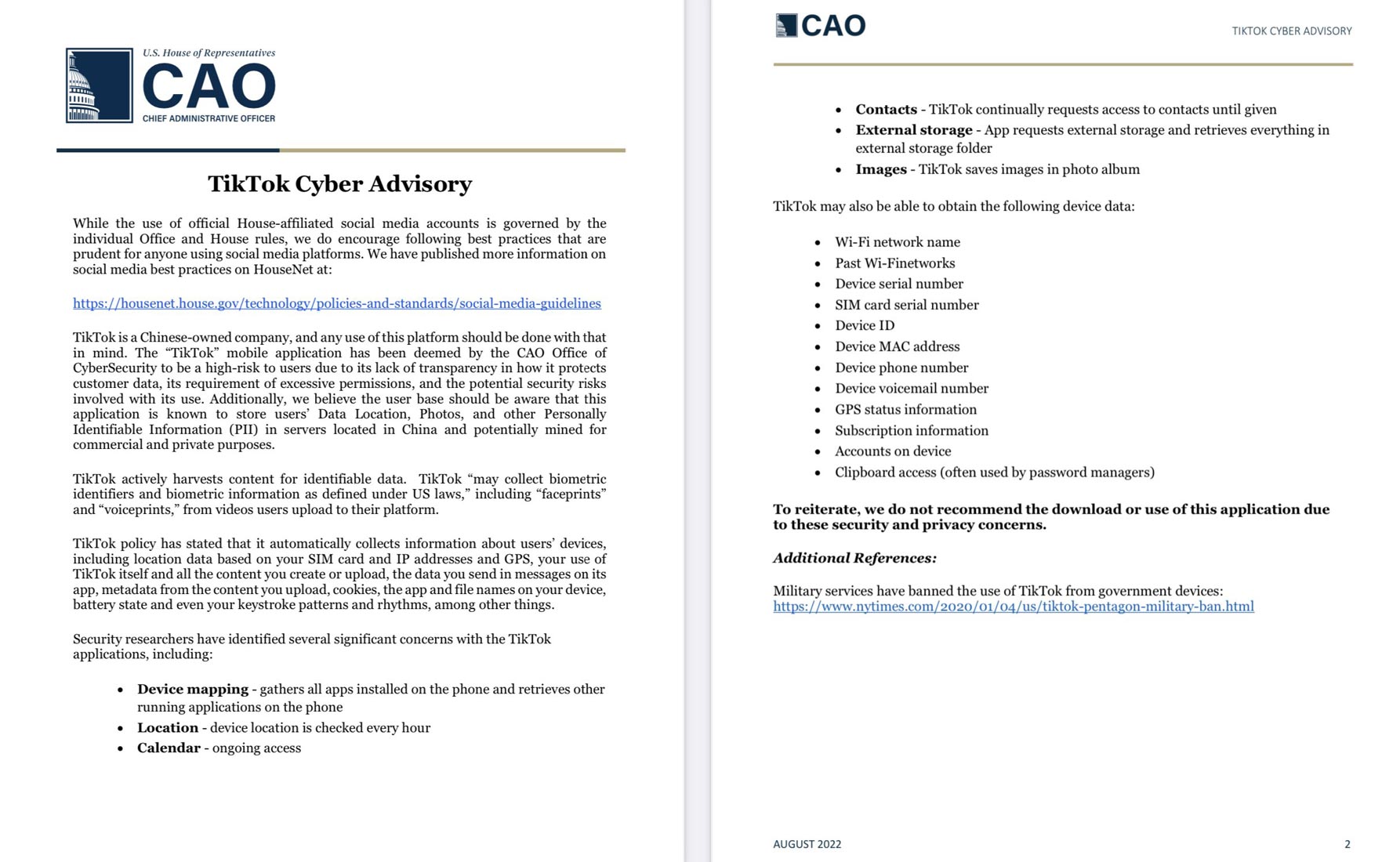When an App is not native to any country and they manage all user’s data in different countries, The App always gets backlash from the Government. It is always beneficial, and correct thoughts are from the Government. Since the People’s data is handled outside the country, It may base used against them. It is a threat to people. If anything goes wrong, people again complain about the Government. So, it is necessary to protect users from those threats. The US Government is not happy with TikTok, which handles US people’s data outside the country. So, They try to force the app to and. But, It may or may not happen with the public. But to protect the sensitive data, TikTok was banned from all US Government Devices.

What is TikTok?
TikTok launched in 2016 and quickly gained popularity among young people for its unique format of short-form videos. The videos are typically 15 seconds to one minute in length. The app allows users to create and share lip-sync, comedy, and talent videos and participate in viral challenges. TikTok has become a cultural phenomenon, with many of its videos going viral and its users achieving celebrity status.
Why are Governments not happy with TikTok App?
However, the app has also faced scrutiny over its ties to China and concerns about the Chinese Government’s access to user data. In 2019, the Trump Administration began investigating TikTok’s data collection practices and potential national security risks. In August 2020, Trump issued an executive order directing the Commerce Department to ban TikTok unless it was sold to an American company.
Past Governemnt Forces on TikTok App in US region
On August 6, 2021, the Trump Administration issued an executive order to ban the popular video-sharing app TikTok from all United States government devices. The ban was set to go into effect on September 20, 2021, but was ultimately blocked by a federal judge on September 27, 2021. The ruling stated that TikTok posed a national security threat due to its parent company, Chinese tech giant ByteDance, having access to user data. The Biden Administration has since upheld the ban, but the legal battle surrounding it is ongoing.
ByteDance is TikTok’s parent company. They attempted to address these concerns by negotiating a deal with Oracle and Walmart to form a new company called TikTok Global. Under the agreement, Oracle would host TikTok’s data, and Walmart would invest in the new company. However, the Trump Administration rejected the deal, stating that it did not adequately address national security concerns.
TikTok Ban on US Government Devices
On August 6, 2021, Trump issued a new executive order banning TikTok from all United States government devices. The order stated that any transaction with TikTok, including downloading the app, would be prohibited on government devices starting September 20, 2021. The ruling cited concerns about the Chinese Communist Party’s access to user data through TikTok and the potential for disinformation campaigns on the app.
The ban was met with backlash from TikTok users and free speech advocates. They also argued that it was an attack on free expression and that the national security concerns were unfounded. TikTok filed a lawsuit challenging the ban. They say it was motivated by political reasons rather than national security concerns. On September 27, 2021, a federal judge granted a preliminary injunction blocking the ban from going into effect. The judge stated that TikTok had demonstrated a likelihood of success in its lawsuit and that the ban would cause irreparable harm to the company and its users.
Biden Government also wants to Ban TikTok on Government devices
The Biden Administration has upheld the ban on TikTok. But the legal battle over it is ongoing. In the meantime, TikTok continues to be a popular app. It already got millions of users in the United States. The controversy surrounding the app has brought attention to the broader issue of data privacy and the potential risks of using foreign-owned apps and technology.
Steps Taken by Government
The United States government passed a spending bill that includes a provision to ban TikTok on almost all federal Government devices. The No TikTok on Government Devices Act was added to the $1.7 trillion omnibus spending package. The Senate approved on December 22, 2022, with a unanimous vote, and the House on December 24, with a vote of 225-201. The bill was signed into law by President Joe Biden on December 27, 2022.

Under the legislation, the Biden Administration must implement rules to remove TikTok from government devices by mid-February 2023. Exceptions to the ban are made for elected officials, congressional staff, law enforcement agents, and other officials. In addition, the House of Representatives has separately banned TikTok on devices it owns and manages.
The TikTok ban was added to the spending bill as a last-minute measure to avoid a partial government shutdown. The spending package will fund the Government through September. The TikTok ban has received criticism from free speech advocates and TikTok users. They argue that it is an attack on free expression and that the national security concerns cited by lawmakers are unfounded. The legal battle over the TikTok ban is ongoing.
Wrap Up
The ban on TikTok has been a highly publicized and controversial issue. It is essential to note that it is not the only app that has faced scrutiny over data privacy concerns. Other apps and technology companies, including Facebook, Google, and Huawei, have also faced criticism. The issue is the same as regulatory action over their data collection practices. The TikTok ban highlights the importance of understanding technology’s potential risks and consequences and the need for greater transparency and accountability from tech companies.

Selva Ganesh is the Chief Editor of this Blog. He is a Computer Science Engineer, An experienced Android Developer, Professional Blogger with 8+ years in the field. He completed courses about Google News Initiative. He runs Android Infotech which offers Problem Solving Articles around the globe.



Leave a Reply